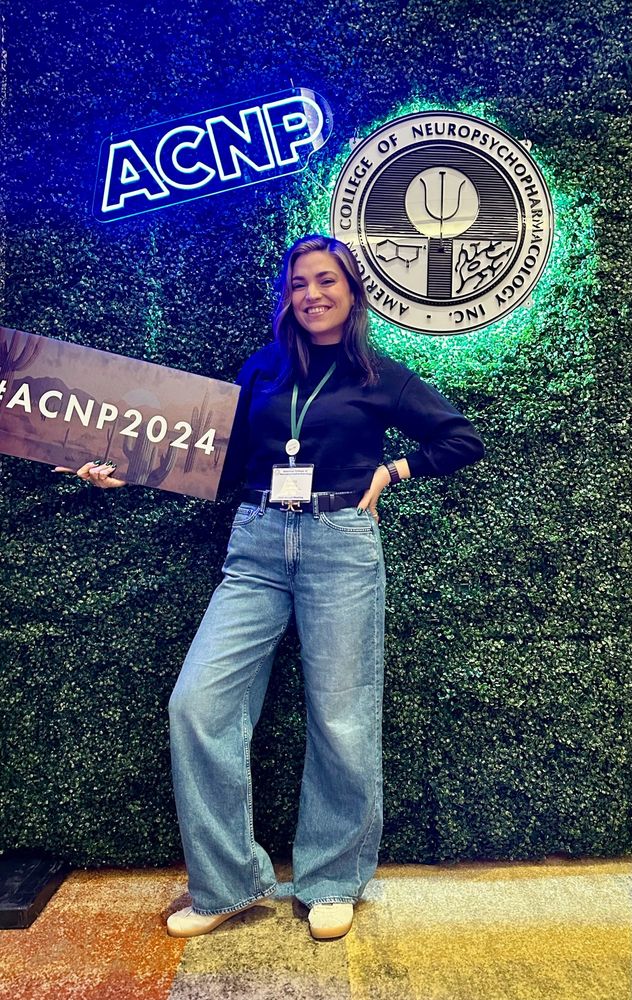Thank you to the @yulonglilab.bsky.social
for the generation and characterization of the GRABeCB sensor, which made this study possible.
@davidjmarcus.bsky.social
@davidjmarcus.bsky.social
Thank you to the @yulonglilab.bsky.social
for the generation and characterization of the GRABeCB sensor, which made this study possible.
Thank you to the Stella lab, the Land lab, and Anthony English
for the continued discussion and helping to refine my story, and especially for the creation and validation of the Linear Track pipeline for supervised behavioral classification.
Lastly, I would like to extend my gratitude to all of our wonderful collaborators both within the UW community and abroad.
11.01.2025 21:45 — 👍 0 🔁 0 💬 1 📌 0Overall this report uncovers a fundamental molecular mechanism that involves localized eCB production in the regulation of engagement in reward-seeking behaviors through gain-control of an anatomically and genetically defined thalamo-striatal circuit.
10.01.2025 17:42 — 👍 0 🔁 0 💬 1 📌 0Furthermore, using novel pose estimation and machine learning algorithms combined with 1-photon imaging, we found that engagement in reward-seeking is encoded by specific ensembles of genetically defined NAc neurons that receive aPVT input.
10.01.2025 17:42 — 👍 0 🔁 0 💬 1 📌 0We found that eCBs are released in the Nucleus Accumbens (NAc) during reward seeking, and that these eCBs regulate engagement in reward-seeking behaviors through retrograde inhibition excitatory terminals arising from the anterior paraventricular thalamus (aPVT).
10.01.2025 17:42 — 👍 0 🔁 0 💬 1 📌 0In this study, we brought to bear several novel tools and approaches to understand how endocannabinoid signaling regulates reward-seeking behaviors, which are highly evolutionarily conserved, and importantly disrupted in numerous psychiatric and substance use disorders.
10.01.2025 17:42 — 👍 0 🔁 0 💬 1 📌 0Since my undergraduate research, I have been investigating the eCB system, the most widely expressed neuromodulatory system in the brain. However, this ubiquitous expression as well as the lipophilic nature of the ligands have made investigation if its role in vivo difficult.
10.01.2025 17:42 — 👍 0 🔁 0 💬 1 📌 0
I’m excited to share the most recent study from the Bruchas
lab, which represents the culmination of my postdoctoral work, and serves as the platform for my future research programs investigating the in vivo role of the endocannabinoid signaling system!
www.biorxiv.org/content/10.1...
❤️ my cannabinerds
11.12.2024 21:09 — 👍 3 🔁 0 💬 0 📌 0Hi #ACNP2024! I'm a NIDA K99 postdoc in Michael Bruchas' lab at UW, interested in how endogenous opioids in the basal ganglia promote goal-directed behavior. Come by my poster on Wed (W171) if you'd like to hear more.
I'm also on the job market and would love to chat about potential opportunities!
You know you’ve goofed up when the official @npp-journal.bsky.social account starts ribbing you 😅
09.12.2024 20:43 — 👍 1 🔁 0 💬 1 📌 0Also, as of last month I am officially on the market, so please swing by to discuss potential opportunities!
09.12.2024 19:45 — 👍 3 🔁 1 💬 0 📌 0Hello #ACNP24 !
I'm David and I am a postdoc in the Bruchas lab at the University of Washington studying how endogenous cannabinoid signaling facilitates motivated behavior. Please swing by poster T61 on Tuesday from 5-7 to hear more about my work over the last four years!

Hello #ACNP2024
I’m Kasey Girven a Postdoc in the Bruchas Lab at The University of Washington.
I study how a neuropeptide S, peri-coerulear projection to the OFC is recruited during repeat exposure to high value rewards 🐭🧀💉
Come listen to my spiel this Wednesday at 3PM in the Grand Sonoran JK 🧠